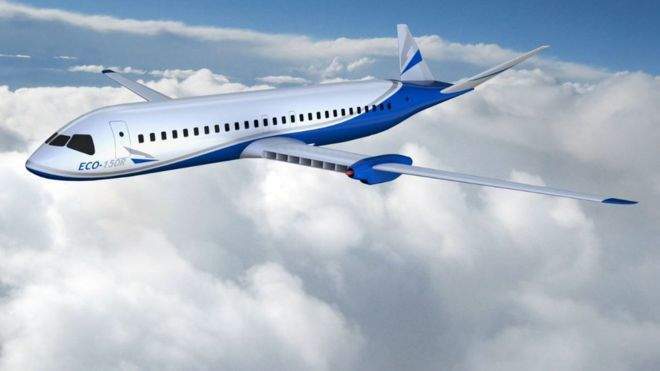
Wright Electric, a US-based startup announced plans to make all journeys of less than 300 miles electric, and therefore zero-emissions, in the next 20 years.
Short-haul trips account for 30 percent of all flights and represent a £20bn ($25bn) market.
The company gave its first preview to tech investors at the annual Y Combinator Demo Day in California on Tuesday alongside over 100 other innovative startups.
Y Combinator is Silicon Valley’s most highly-regarded start-up incubator programme, which has supported the likes of Airbnb and Dropbox.
Wright Electric said it is currently building a 150-seat plane called the Wright One, which could fly from London to Paris in a decade.
The company is working with American inventor Chip Yates, who created the world’s fastest electric motorcycle and electric aircraft, the Long-ESA.
How well do you really know your competitors?
Access the most comprehensive Company Profiles on the market, powered by GlobalData. Save hours of research. Gain competitive edge.

Thank you!
Your download email will arrive shortly
Not ready to buy yet? Download a free sample
We are confident about the unique quality of our Company Profiles. However, we want you to make the most beneficial decision for your business, so we offer a free sample that you can download by submitting the below form
By GlobalDataBy removing the need for jet fuel, the price of travel could drop dramatically for passengers, according to Wright Electric. Electric planes will also be significantly less noisy.
“Depending on how it’s designed, you can have an electric plane that’s substantially less loud than a fuel plane,” said Jeff Engler, Wright Electric’s co-founder.
Easyjet, the British low-cost airline has already expressed interest in Wright Electric’s electric-powered planes.
“Easyjet has had discussions with Wright Electric and is actively providing an airline operator’s perspective on the development of this exciting technology,” the airline told the BBC.
To cover the range of short-haul flights however, battery technology still has a long way to go.
Professor Herve Moran, director at the Institute for Aerospace Technology told Verdict Wright Electric’s goal to operate a short-haul electric flight in 10 years is not realistic.
“Even if the future of flight is electric, and I believe firmly in this, the timescales and technologies put forward are ambitious and not sufficient,” he said. “Wright Electric’s plans do not look possible unless they revolutionise energy storage for what are the best battery projections at present. We will see electric flight over the next 20 years, in particular short haul but not solely with batteries.”
European company Airbus has been developing an electric two-seater E-Fan plane since 2014. The company has also discussed plans to build a short-haul electric plane with between 70 to 90 seats.
Worldwide, flights produced 781m tonnes of harmful carbon dioxide emissions in 2015 and airlines carried nearly 3.6bn passengers, according to the Air Transport Action Group.







